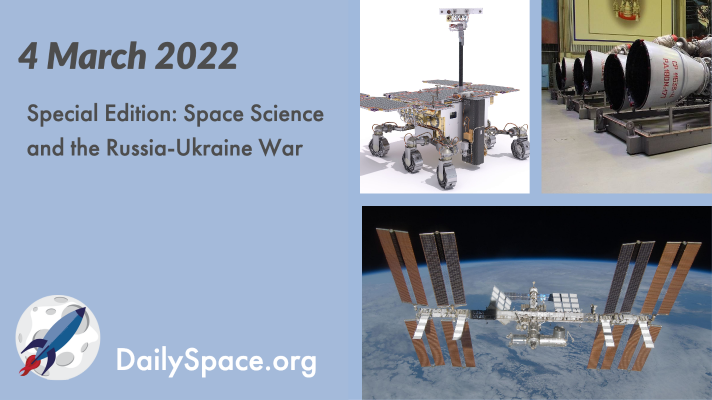
Mar 5, 2022 | Crewed Space, Daily Space, Earth, ESA, JAXA, Rockets, ROSCOSMOS, Science, Soyuz, Space History, Space Policy, Spacecraft, SpaceX
Today we’re going to discuss the repercussions to space science of Russia’s invasion of Ukraine. Some people may find this subject upsetting, and if you need to skip this episode, we understand. We’re going to take a look at Roscosmos and how space corporations and nations are imposing sanctions that impact how, when, and what we send to space.
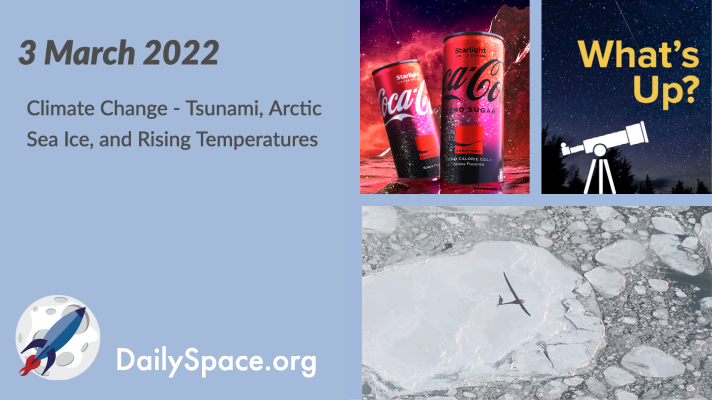
Mar 4, 2022 | Climate Change, Daily Space, Earth, ESA, Galaxies, Neutron Stars / Pulsars, Review, Rockets, Sky Watching, Spacecraft, SpaceX, Starlink, Stars
In the latest climate change news, ancient underwater landslides could help us understand tsunami risks in the Middle East, NASA now has a ‘Vanilla’ ice drone to study the Arctic, and lake temperatures are rising. Plus, we bring you joy with this week’s What’s Up and a review of Starlight Coke.
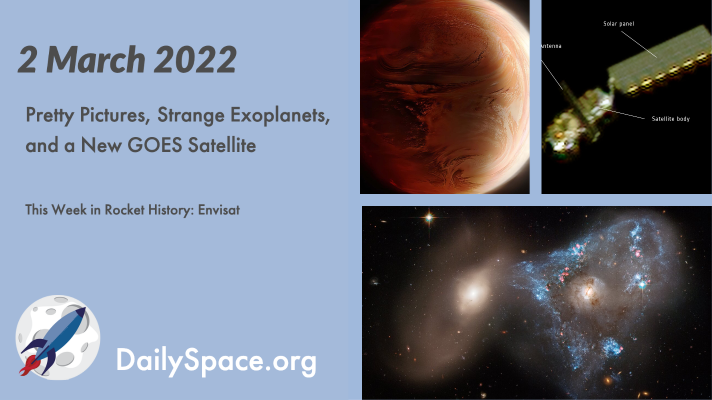
Mar 3, 2022 | Daily Space, ESA, Exoplanets, Galaxies, Kepler, Neutron Stars / Pulsars, Observatories, Random Space Fact, Rockets, Space History, Spacecraft
To bring some joy into a fraught world, we have rounded up a few of the latest image releases of star mergers and galaxies to brighten your day. Plus, we’ll look at a few strange exoplanetary systems and their amazing science, talk about the latest GOES satellite to launch, and this week in rocket history is all about Envisat.
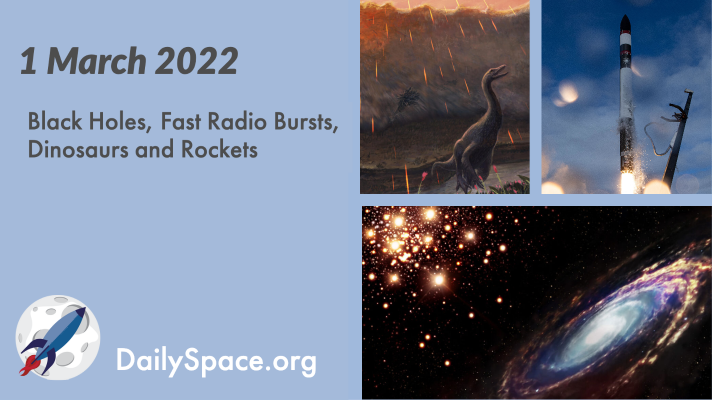
Mar 2, 2022 | Asteroids, Black Holes (Stellar), Crewed Space, Daily Space, Earth, Fast Radio Bursts, Neutron Stars / Pulsars, Rocket Lab, Rockets, Space China, SpaceX, Starlink, Supermassive Black Holes
As we return from our mini-break, we bring you some highlights of stories that happened while we were away, including black holes spiraling toward each other, the possible origin of a fast radio burst, and more information on the demise of the dinosaurs. Plus, Erik Madaus brings us updates on quite a few rocket launches.
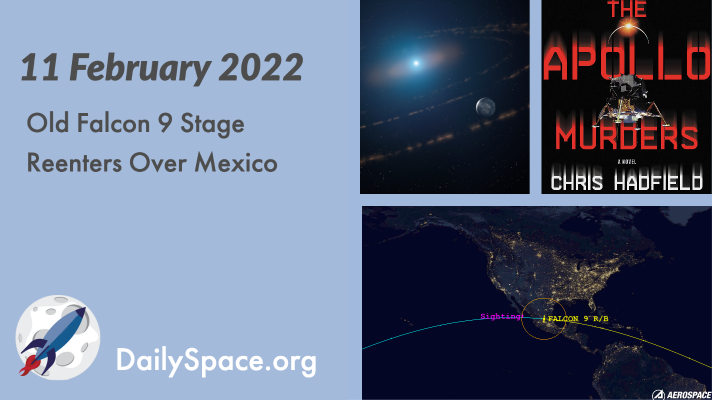
Feb 14, 2022 | Asteroids, Book Club, Daily Space, Exoplanets, JWST, Review, Rockets, Soyuz, Spacecraft, SpaceX, White Dwarfs
The second stage of a Falcon 9 rocket launched in 2017 re-entered the atmosphere over Mexico, breaking up and creating a show of fiery lights in the sky. Plus, dead stars with possibly living planets, more on moon formation, more launches, more launch failures, and a review of “The Apollo Murders” by Chris Hadfield.
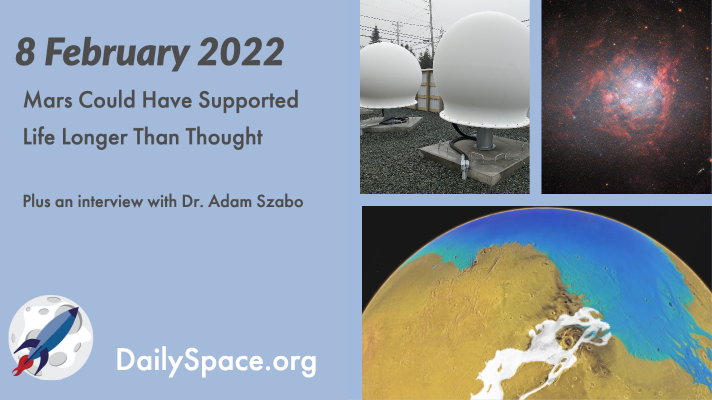
Feb 9, 2022 | Daily Space, Galaxies, Guest Interview, Mars, Rockets, ROSCOSMOS, Saturn, Soyuz, Spacecraft, SpaceX, Starlink, The Sun
A NASA-funded simulation of early Mars revealed that the climate three billion years ago on the red planet was very similar to Earth now, with a stable ocean in the northern hemisphere. This new timeline would have given life another 500 million years to develop. Plus, a dwarf galaxy, Saturn’s aurorae, a Soyuz launch, and an interview with Dr. Adam Szabo, mission scientist for the Parker Solar Probe.








 We record most shows live, on Twitch. Follow us today to get alerts when we go live.
We record most shows live, on Twitch. Follow us today to get alerts when we go live.